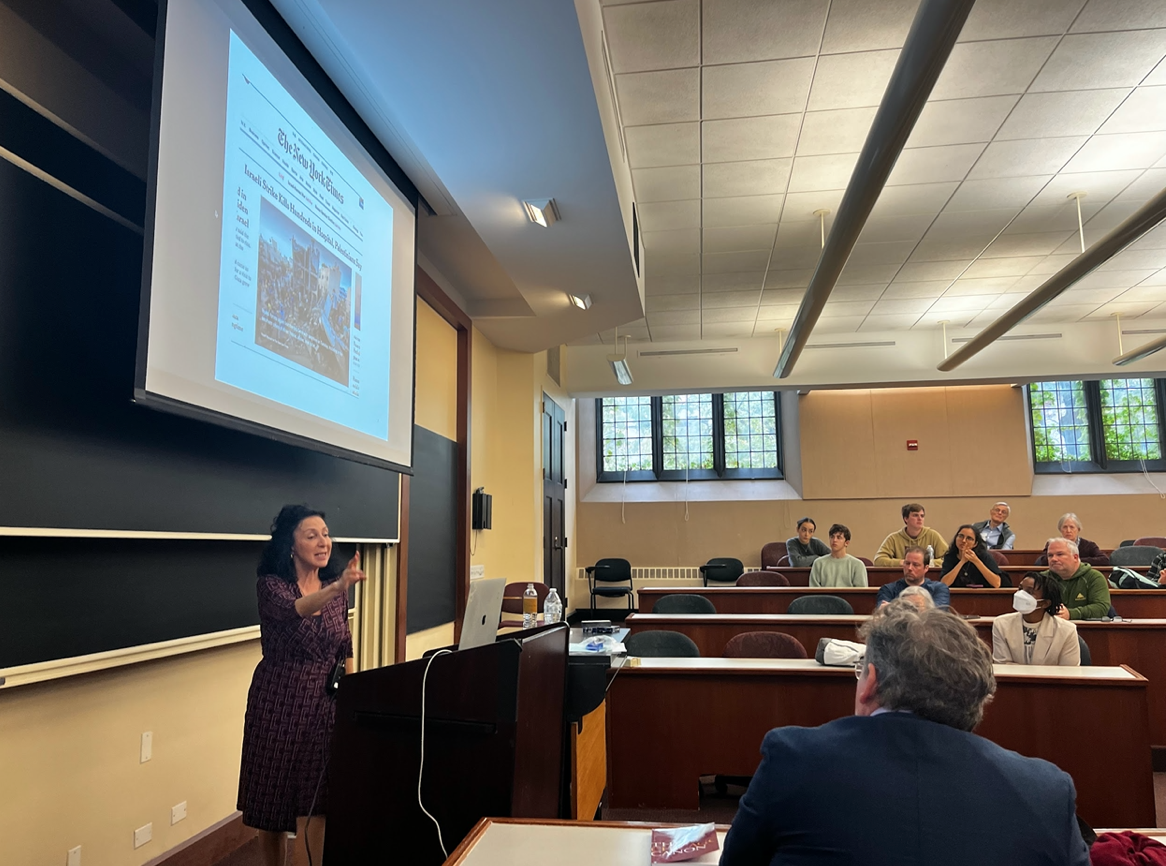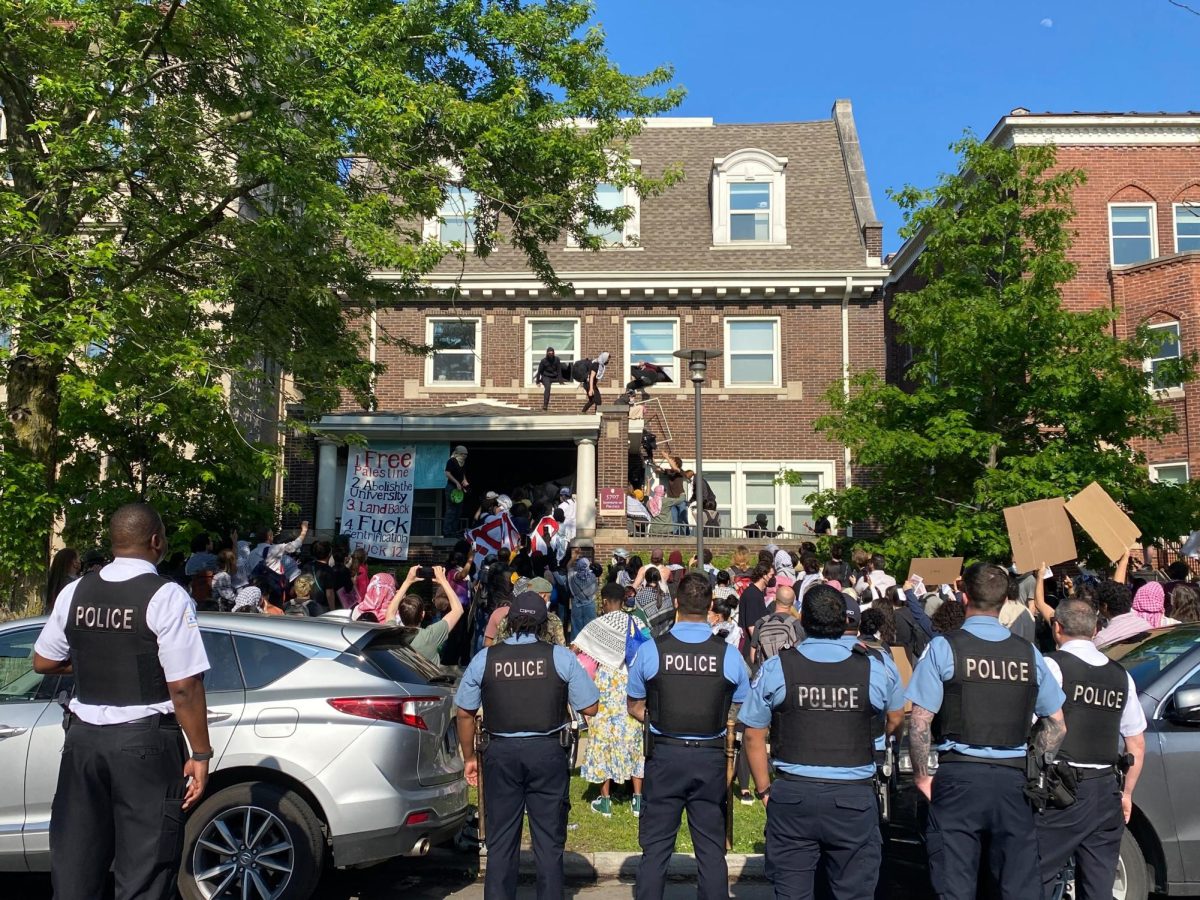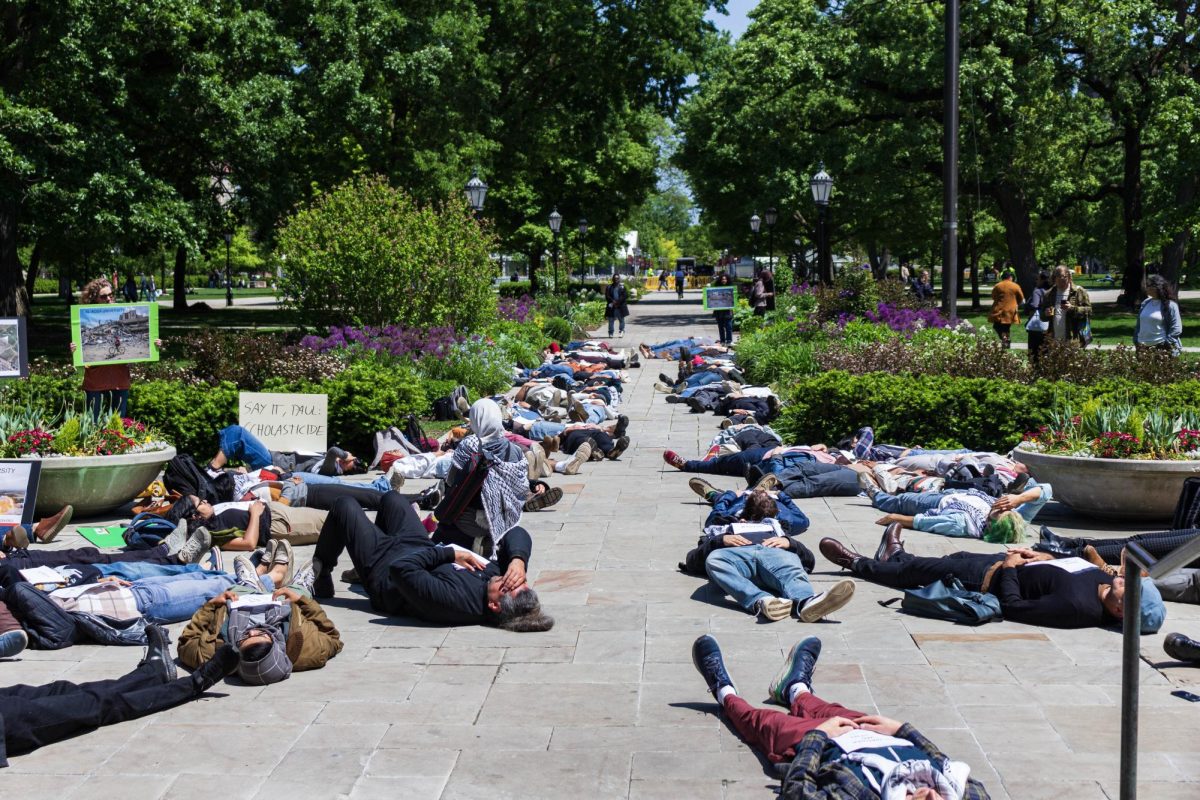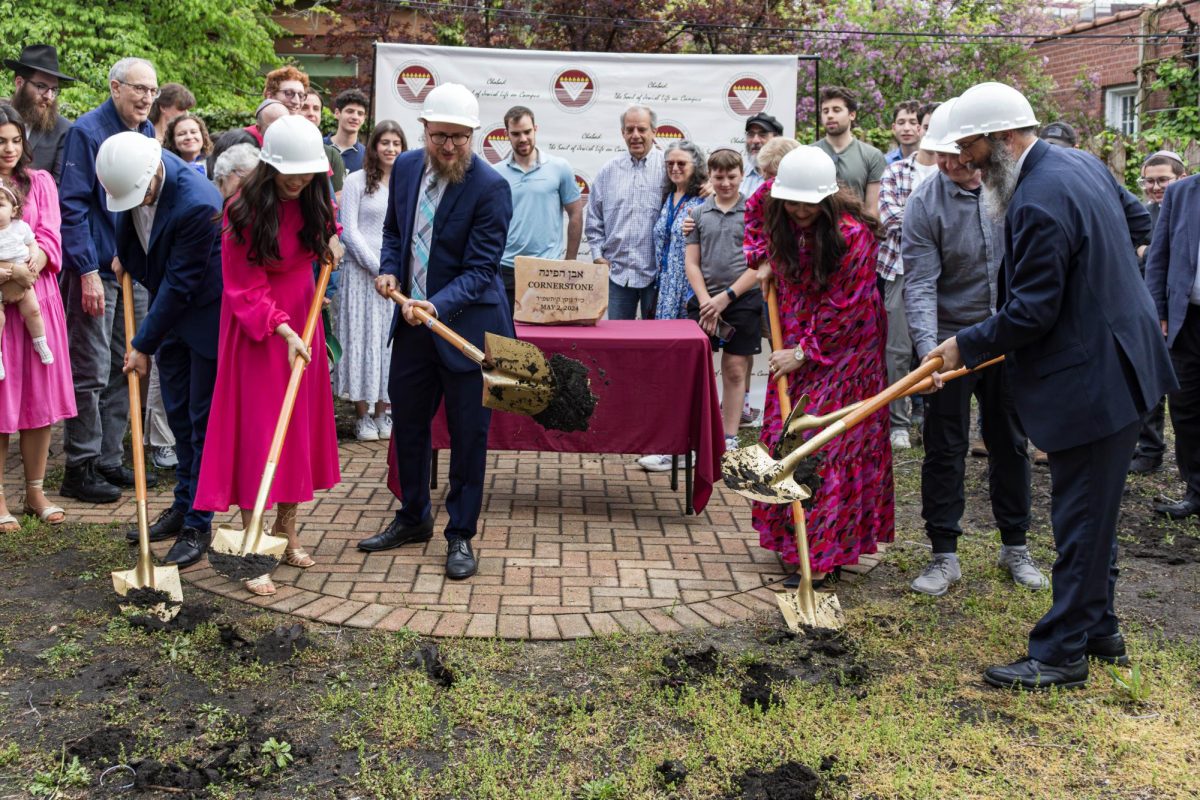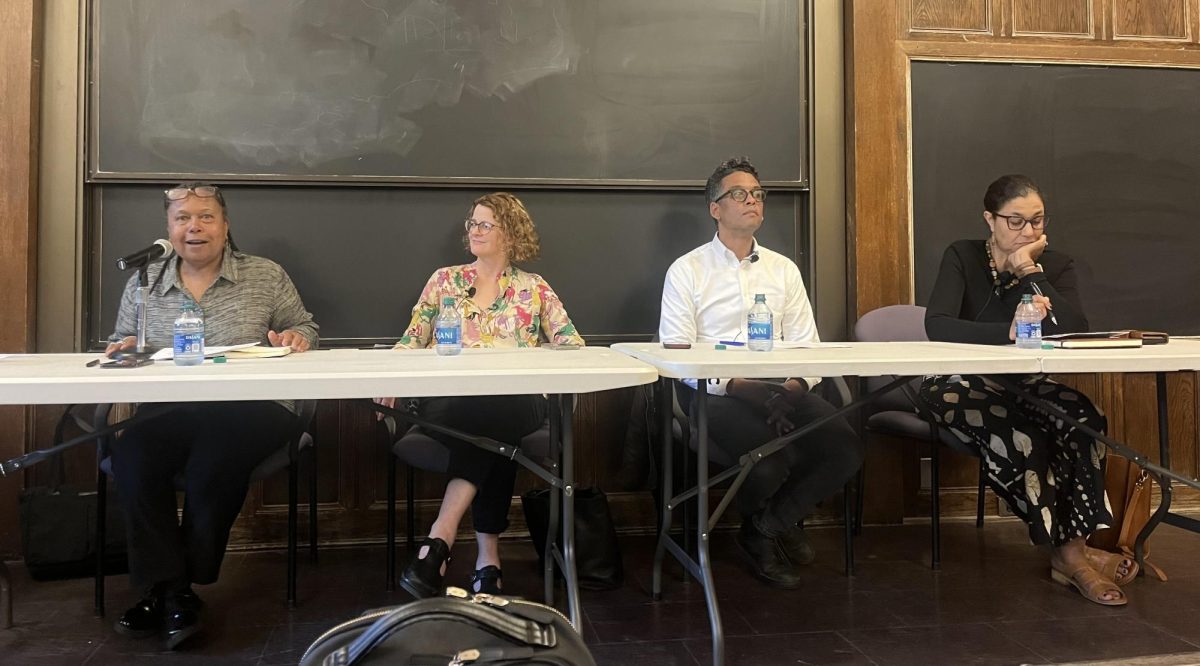The University’s Humanities Division welcomed students, faculty, alumni, and community members to the 43rd annual Humanities Day on October 21. Led by over 30 professors and affiliated scholars in the University, seminar topics ranged from democratic failures in ancient Greece and Rome to the cultural impact of electronic music to the concept of alienation as it relates to aliens themselves.
Humanities Day also included educational tours of the Logan Center for the Arts, the Neubauer Collegium for Culture and Society, and the Institute for the Study of Ancient Cultures (ISAC) Museum, where participants learned about art history, examined the meaning behind certain sculptures, and viewed ancient artifacts.
The main event was a keystone session by cultural theorist Sianne Ngai, the Andrew W. Mellon Professor in the Department of English Language and Literature. Titled “The Gimmick as Aesthetic Category and Capitalist Form,” her session interrogated the nature of what an aesthetic category is. She began by exploring the terms zany, cute, and interesting, and pondered why these terms are not given the same philosophical seriousness as words like beautiful and sublime.
Ngai further explored how the “gimmick” can reveal the interconnected contradictions concerning labor, time, and value in capitalist culture. Alongside many other sessions which drew larger crowds, the session was sold out in-person and was streamed virtually.
In addition to Ngai’s keynote speech, the day also brought together professors from other humanities disciplines. Senior Lecturer in Philosophy Bart Schultz gave a seminar on “Decolonizing Utilitarianism,” in which he argued that many of the founding philosophers of utilitarianism, an ethical framework which advocates for “the greatest good for the greatest number,” had racist and colonial mindsets that need to be acknowledged. In particular, these philosophers often used utilitarianism to justify the “civilizing” mindset of the British colonizers, who believed that people in Africa and Asia needed British support and Western culture in order to have a good life. Schultz noted that despite these facts, almost all books discussing these philosophers leave out their racism and colonial mindset, and most professors will choose not to mention this history either. “[This notion of] higher education institutions as bastions for ‘woke’ is nonsense,” Schultz said. “Everybody’s teaching these texts in the same way.”
Another seminar that produced lively discussion amongst the audience came from the Frank J. McLoraine Professor of Linguistics and Director of the Center for Hellenic Studies, Anastasia Giannakidou. In her talk, “Language and Thought, Truth and Deception,” she discussed what truth in language actually means and how language can be distorted to manipulate thought. In particular, she introduced a topic from her research called the “veridicality principle,” which states that someone can only assert a sentence truthfully only if they know or believe that statement to be true. “[The veridicality principle] demands that interlocutors enter [a conversation] with sincerity with regard to what they know and believe,” Giannakidou said.
Giannakidou also argued that linguistic relativity—the idea that language can control one’s thoughts— is inherently racist against societies with languages that have smaller vocabularies. “Language can frame thought, but it does not determine thought,” she said.
The seminar provoked debate when Giannakidou showed a New York Times headline and image originally titled “Israeli Strike Kills Hundreds in Hospital, Palestinians Say.” She argued that the headline implicated Israel, as the article was published at a point when the cause of the strike was unknown. Particularly, Giannakidou argues that the vague source of “Palestinians” and the image of a burnt building, which isn’t the hospital in question, misleads readers toward certain beliefs without presenting all the facts. Some audience members pushed back on the grounds that it is difficult to fact-check adequately during a war, while others supported Giannakidou’s opinion.
The lively conversations in these and the other thirty seminars rounded out a day of scholarship and debate across a range of departments and expertise. The Division of Humanities will be uploading recordings of some seminars on their YouTube page in the following weeks.


